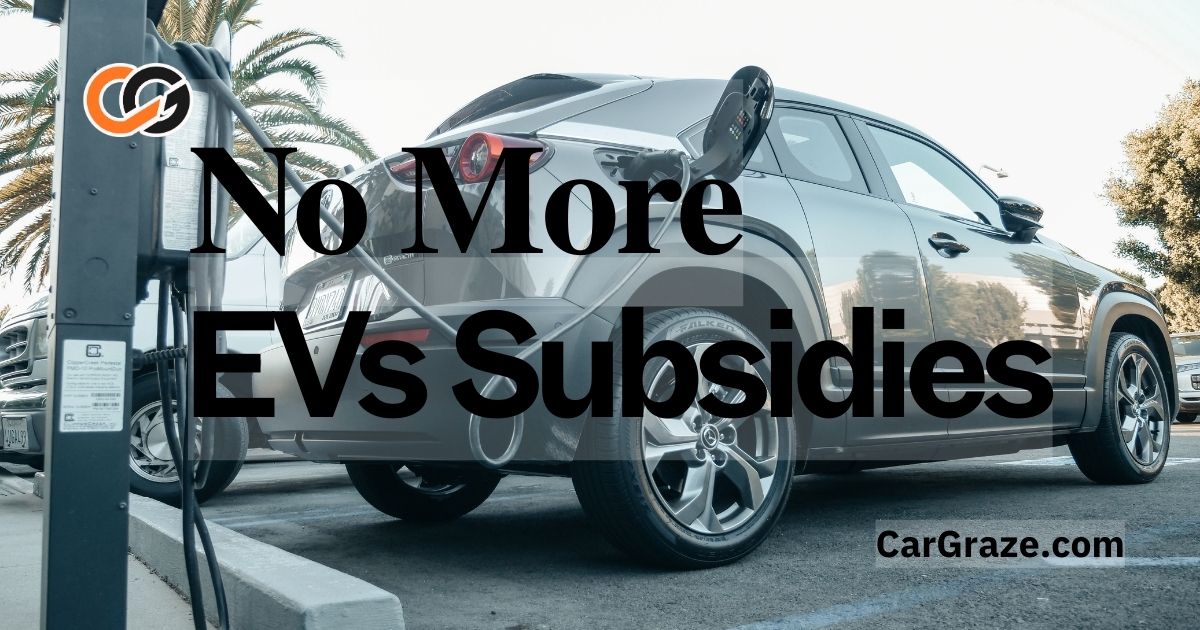
India is steadily embracing electric vehicles (EVs) as the future of transportation, with a growing number of people making the switch from petrol and diesel vehicles. However, a cloud of uncertainty looms over the sector: What happens if the government stops providing subsidies for EVs? In a recent update, Union Minister Nitin Gadkari hinted at changes to EV incentives, raising questions about what this shift might mean for buyers, manufacturers, and the environment.
In this article, we’ll dive deep into EV subsidies in India, explore Gadkari’s comments, compare the taxes on different fuel types, discuss the cost of EV batteries, and evaluate whether electric vehicles are still a smart choice without subsidies.
1. What Are EV Subsidies in India?
To encourage the adoption of electric vehicles, the Government of India introduced several subsidies under the FAME II (Faster Adoption and Manufacturing of Hybrid and Electric Vehicles) scheme. These subsidies lower the initial cost of EVs, making them more competitive with their petrol and diesel counterparts.
- For two-wheelers: Up to ₹15,000 per kWh of battery capacity.
- For four-wheelers: Varies based on battery size, with ₹10,000 per kWh being a common rate.
- Road tax exemptions: Many states also provide road tax exemptions and registration fee waivers for EVs.
However, these subsidies come with an expiration date. The government reviews them periodically, and there have been concerns about whether the scheme will continue in its current form.
2. Will EV Subsidies Be Withdrawn? What Did Nitin Gadkari Say?
Nitin Gadkari, the Union Minister of Road Transport and Highways, recently suggested that the time for subsidies on EVs may be coming to an end. He hinted that with technology advancing and the EV market becoming more competitive, the government might shift its focus from subsidies to other measures that promote sustainability.
Gadkari believes that manufacturers need to reduce costs and innovate to compete without government support. His vision emphasizes building self-reliant, cost-effective EVs through improved production capabilities, local manufacturing, and economies of scale.
If subsidies are withdrawn, EV buyers could feel a significant financial impact. However, this also signals the government’s confidence that the EV market is maturing enough to stand on its own.
3. Comparison of Tax and GST on Different Vehicle Fuel Types
Taxes and GST rates vary based on the type of vehicle and its fuel type. Here’s a quick comparison of the tax structure across fuel types:
| Vehicle Type | GST Rate | Additional Taxes |
| Petrol Vehicles | 28% | Road Tax (10-15%), State VAT |
| Diesel Vehicles | 28% | Road Tax (10-15%), State VAT |
| Hybrid Vehicles | 43% | Road Tax+Cess on Engine Size |
| Electric Vehicles (EV) | 5% | Minimal Road Tax (varies by state) |
Electric vehicles benefit from the lowest GST rate of just 5%, compared to the 28% imposed on petrol and diesel vehicles. Additionally, some states offer road tax exemptions and free registrations for EVs.
4. Tax Exemptions on EVs Across Indian States: A Quick Overview
The push for electric vehicle (EV) adoption in India has been bolstered by central and state-level incentives, especially tax exemptions. However, the extent of these exemptions varies significantly across states, and a few states still do not provide robust consumer incentives. Below is an overview of road tax exemptions and some insights on why certain states have lagged in this area.
1. 100% Road Tax Exemption States
Delhi, Maharashtra, Karnataka, Punjab, Telangana, Andhra Pradesh, Uttar Pradesh, West Bengal, Assam, Odisha, Tamil Nadu, Bihar, Meghalaya: These states have waived 100% of the road tax on EVs, making them attractive markets for electric vehicles. Some of these states, like Delhi and Maharashtra, also provide additional subsidies for EV buyers
2. Partial Exemption States
- Gujarat: Offers a 50% reduction in road tax alongside vehicle subsidies.
- Kerala: Provides a 50% road tax exemption, making it relatively supportive but not as generous as the 100% tax-exempt states.
3. States with No or Limited Consumer Incentives
Karnataka, Andhra Pradesh, Madhya Pradesh, Telangana, Tamil Nadu, Uttarakhand, and West Bengal: While these states offer road tax exemptions, they do not provide direct purchase subsidies beyond the FAME II scheme. This might be due to their preference for promoting EV manufacturing and infrastructure development over consumer incentives.
- Uttar Pradesh: Although this state offers a 75% exemption on road tax, it restricts full benefits only to EVs manufactured and registered locally beyond the first few years of its policy, showing a focus on regional economic growth.
Why Some States Lag in Providing Incentives
The decision not to offer additional subsidies or limited tax breaks can stem from several factors:
- Budget Constraints: Some states may lack the financial resources to provide extensive incentives.
- Focus on Infrastructure Development: States like Tamil Nadu and Karnataka prioritize manufacturing hubs, battery plants, and EV infrastructure over direct consumer incentives.
- Policy Delays: Some state EV policies are either in the approval stages or being modified to align with local goals and environmental objectives.
While the level of state support can vary, the general trend across India favors EV adoption with incentives tailored to local priorities.
5. How Much Do EV Batteries Cost?
One of the biggest expenses in an EV is the battery, which accounts for about 40-50% of the vehicle’s price. Battery prices have been falling globally, but they remain high for Indian consumers.
- Battery cost: ₹15,000 - ₹20,000 per kWh.
- Total cost for an EV battery: ₹4 lakh - ₹7 lakh for mid-range electric cars.
As battery technology improves and local manufacturing plants scale up (like the ones being planned under the Production-Linked Incentive (PLI) scheme), prices are expected to decrease in the coming years.
6. Should You Still Consider an EV Without Subsidies?
If subsidies are withdrawn, will it still make sense to buy an EV? Let’s break it down.
Pros of EVs:
- Lower Running Costs: Electricity is cheaper than petrol or diesel.
- Minimal Maintenance: Fewer moving parts mean fewer repairs.
- Eco-Friendly: Zero tailpipe emissions help reduce pollution.
- Futuristic: EVs align with the future of sustainable transport.
Cons of EVs:
- Higher Initial Cost: Even with subsidies, EVs can be more expensive. Without subsidies, prices will increase further.
- Range Anxiety: Limited charging infrastructure and range concerns still exist.
- Battery Replacement Cost: Expensive battery replacements might offset some savings.
While the long-term savings from fuel and maintenance can make up for the higher purchase price, consumers need to carefully evaluate their driving patterns, access to charging infrastructure, and budget.
7. Conclusion: Are EVs the Right Choice for You?
Even if the government withdraws subsidies, EVs remain an attractive option for many buyers. The cost savings on fuel and maintenance, coupled with environmental benefits, make them a solid choice for those thinking long-term. However, for buyers on a tight budget, the absence of subsidies may push them to reconsider their options.
Nitin Gadkari’s message is clear: the future belongs to electric vehicles, with or without subsidies. As the market matures, prices are expected to fall due to technological improvements, local manufacturing, and competition. So, if you're considering buying an EV, now might be a good time to make the switch and take advantage of the existing subsidies before they are phased out.
What do you think about the future of EVs in India? Will the end of subsidies slow down adoption, or are we ready to embrace electric vehicles regardless? Share your thoughts in the comments below!



Comments